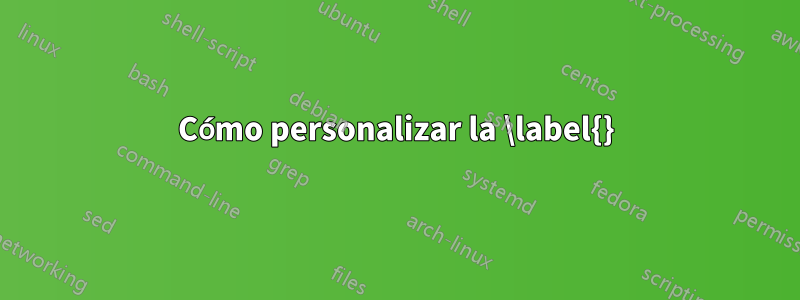
Me gustaría cambiar la presentación del comando \label{}. Más precisamente para los teoremas de ntheorem.
De hecho, creé un teorema llamado "supuesto" y me gustaría referir un supuesto con una letra en lugar de un número.
Así que tengo en mi preámbulo
\newtheorem*{hyp}{Assumption}}
Declaro en mi artículo
\begin{hyp}[\ref{H}]\label{H}
\end{hyp}
Cuando me refiero a H, (1)está impreso, pero mi objetivo es llegar (H)con un enlace dinámico. Conozco el comando \tag{}en el entorno \begin{equation}pero eso es todo.
Propongo este ejemplo mínimo.
\documentclass[11pt]{article}
\usepackage[utf8x]{inputenc}
\usepackage[T1]{fontenc}
\usepackage[english]{babel}
\usepackage{amsmath,amssymb,mathrsfs}
\usepackage[colorlinks=true,linkcolor=blue,citecolor=red,backref=page]{hyperref}
\usepackage[hyperref]{ntheorem}
{\theoremheaderfont{\normalfont\bfseries}
\theorembodyfont{\itshape}
\theoremseparator{:}
\newtheorem*{hyp}{Assumption}}
\begin{document}
\begin{hyp}[\ref{sheme}]\label{sheme}
Bla bla
\end{hyp}
\begin{hyp}[H]
Bla bla
\end{hyp}
\begin{equation} 1=1, \tag{\textbf{H}$_{Mon}$} \label{mono} \end{equation}
Reference to mono: (\ref{mono}), with an hyperlink
\end{document}
Es posible cambiar una etiqueta en un equationentorno. ¿Cómo puedo hacerlo en otro lugar?
Respuesta1
Aquí decir \usepackage[hyperref]{ntheorem}no es suficiente. ¡El hyperrefpaquete también debe cargarse!
\documentclass[11pt]{article}
\usepackage[utf8x]{inputenc}
\usepackage[T1]{fontenc}
\usepackage[english]{babel}
\usepackage{amsmath,amssymb,mathrsfs}
\usepackage[hyperref]{ntheorem}
\usepackage{hyperref}
{\theoremheaderfont{\normalfont\bfseries}
\theorembodyfont{\itshape}
\theoremseparator{:}
\newtheorem*{hyp}{Assumption}}
\begin{document}
\begin{hyp}[\ref{sheme}]\label{sheme}
Bla bla
\end{hyp}
\begin{hyp}[H]
Bla bla
\end{hyp}
\begin{equation} 1=1, \tag{\textbf{H}$_{Mon}$} \label{mono} \end{equation}
Reference to mono: (\ref{mono}), with an hyperlink
\end{document}
Respuesta2
Finalmente creé el siguiente entorno.
\newenvironment{assumption}[1][\unskip]{%
\begin{enumerate}[label=(\textbf{#1}),leftmargin=60pt]
\item\label{#1}}
{\end{enumerate}}
y conseguir lo que quiero.


